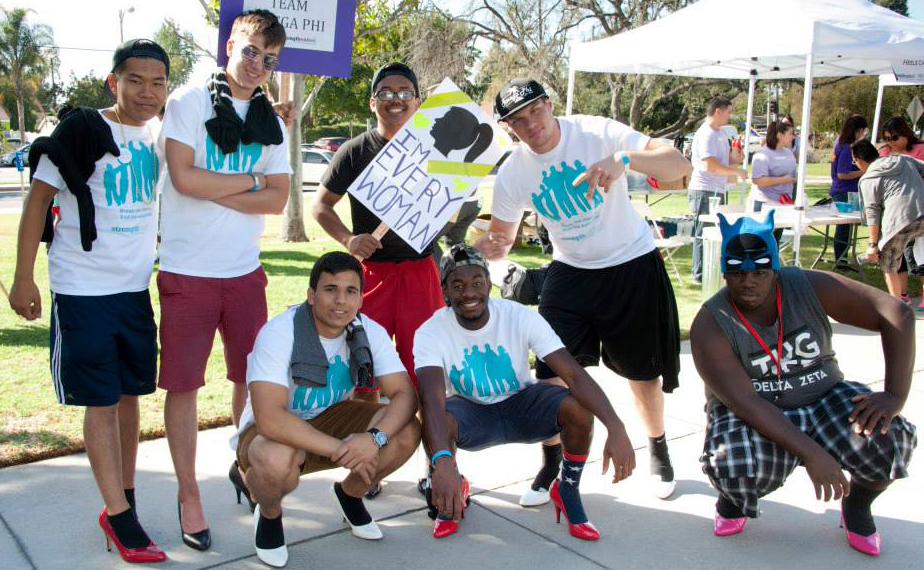New CSUN Initiative is the Next Step of Sexual Assault Prevention on Campus
In its continued efforts to increase awareness of the issue of sexual violence and to promote a safe campus atmosphere, Strength United has created a new program in partnership with California State University, Northridge’s University Counseling Services, called Men CARE (Creating Attitudes for Rape-Free Environments).
Men CARE is a peer-education program for men, by men that aims to prevent sexual assault and violence through critical reflection using group discussions, workshops and outreach events. Men CARE works closely with CSUN Athletics and students who live in campus housing or participate in Greek life, as national statistics indicate that those populations may be more likely to be involved in sexual assault incidents on campus.
“Sexual and domestic violence have been on the rise locally, which greatly reinforces the need to continue expanding the comprehensive prevention work being done at CSUN and in the community,” said Sheri Strahl, chief administrative officer of Strength United. “These topics have historically been viewed as women’s issues, when in fact true change can only happen if all genders are working to end sexual violence.”
The funding and planning for Men CARE started more than a year ago. Strahl created the vision with Mark Stevens and Charlie Hanson, who are professors at CSUN’s College of Educational Psychology. The program embodies the next step in CSUN’s sexual violence prevention program and will push to move beyond raising awareness by actively aiming to change gender norms and behaviors, Strahl said.
Men CARE is implemented by male CSUN students who want to raise awareness about issues of stalking, rape, sexual assault and harassment among their fellow male students. The central aim of this kind of peer education is to dismantle aggressive ideas of masculinity, which lead to disrespectful and oppressive behaviors toward women and men.
“We hope to encourage more progressive and healthy ideas around masculinity and manhood, and examine ideas of unhealthy manhood and hyper-masculinity,” said Shaheh Shabanian, Strength United’s prevention education specialist and a graduate student in CSUN’s social work program. “The biggest shift in gender norms we are trying to create is by having men be the facilitators of dialogues on campus, and recognizing our role in gender violence and preventing sexual assault.”
Shabanian oversees the daily operations of the program and leads peer educators, who organize workshops and talks on campus. He works closely with Stevens on content development and workshop designs. Shabanian said he found his passion for these issues while working an internship at the Klotz Student Health Center on campus in his second year.
“Amy Reichbach (a clinical patient health educator of the Klotz Student Health Center) helped me see my own ability [to help] women by being an open-minded man in a women’s health field,” he said. “I immediately gained insight into the idea of male privilege once I started working [at the student health center] and seeing the additional experiences and hardships women endure to ensure their reproductive health and happiness.”
Shabanian said he encourages other male students to join Men CARE to support campus safety and educate others. Interested students will receive training that involves a variety of discussions and exercises to support leadership and communication skills, personal development and self-awareness.
For more information on Men CARE, visit http://www.csun.edu/counseling/mencare or email mencare@strengthunited.org.


 experience
experience